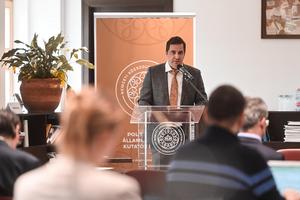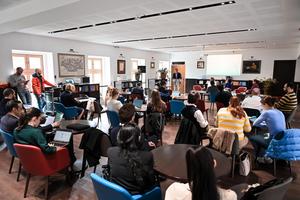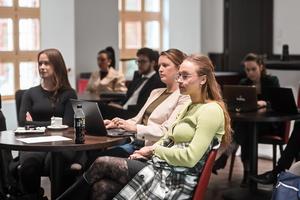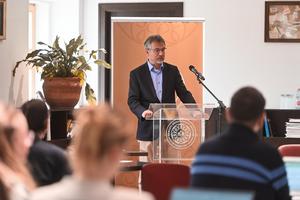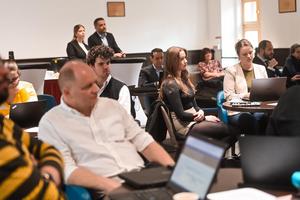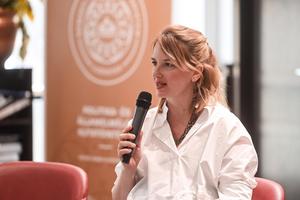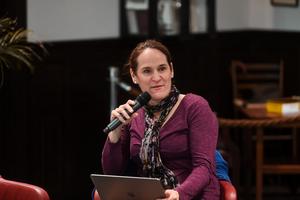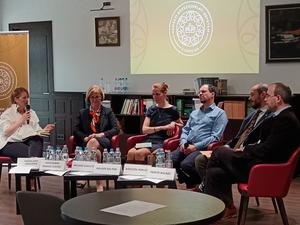On 2nd April 2025, an international conference organized by the Research Institute for Politics and Government of the Ludovika University of Public Service was staged in Budapest at the Side Building of the Ludovika Campus, discussing the important but underrated topic of motherhood in the discourse of political and legal philosophy.
The event got under way with welcoming speeches by Gergely Deli, Rector of the Ludovika University of Public Service, and by Ferenc Hörcher, head of the Research Institute for Politics and Government, stressing the complex social importance of the wellbeing of mothers on a global scale, and the crucial role of family in human society, referring to the revived tradition of natural law that can make a vital contribution to the grounding of key values, making clear the difference between good and bad, right and wrong. According to Dr. Hörcher, the research initiative on Motherhood lead by Johanna Fröhlich, senior research fellow of the Research Institute for Politics and Government, the organizer of this project-launching conference, can deliver important contributions towards a better understanding of the meaning of family, state, men, women, motherhood and fatherhood.
The first panel of the event, moderated by Johanna Fröhlich, featured talks by Erika Bachiochi (Ethics and Public Policy Centre, Fairer Disputations) and Thana de Campos (Pontificial Catholic University of Chile). Bachiochi stressed the importance of speaking about the brute facts of motherhood in a philosophical manner, challenging contemporary feminist views that try to „degender” the fundamental categories of motherhood and fatherhood, and arguing instead for an authentic collaboration between men and women respecting their natural differences. De Campos raised awareness for the problem of loneliness in early motherhood, and spoke about a „loneliness epidemic” effecting a wide strata of modern societies, making a case for reforms in order to make institutions „loving” and empathic towards the special needs of those who are caring for others, creating spaces of encounter and foster a sense of belonging. In her views, homemaking is a collective exercise, where the role of the father is equally important.
The second panel, chaired by Ferenc Hörcher, included three presentations. Ira Chadha-Sridhar (University of Cambridge) represented the care-feminist ethical view, arguing for a more just distribution of actual child-caring activity between parents, which should be equally enforced by the state. Ewa Rejman (University of Notre Dame) gave an overview on how motherhood-protection appears in international law, followed by the organizer of the conference, Johanna Fröhlich, who gave an insight into the background of this international research project on the philosophy of motherhood. According to her, it is a difficult task to speak about the physical reality of motherhood in a sophisticated philosophical manner, despite the fact that parental caretaking for children plays a crucial role in maintaining the political community. The natural law approach is useful in avoiding motherhood to be reduced to the plain biological aspect, and it can provide help in acknowledging motherhood as a reality in the community sphere as well, which cannot be reduced to mere individual choice. She also highlighted to importance of marriage as a key step towards any sort of solution to social problems related to motherhood.
The final part of the conference, a roundtable discussion in Hungarian language was moderated by Johanna Fröhlich and featured leading Hungarian experts from the fields of Constitutional and Private Law, Political Philosophy, Legal Theory and Sociolegal Studies, who discussed various aspects of the relations between parents, children, and the state, reflecting on the challenges the currently starting research project encounters in search of a better understanding of this key aspect of sociocultural reality.
Kálmán Tóth
research fellow
Ludovika University of Public Service
Eötvös József Research Centre
Research Institute for Politics and Government
Photos: Dénes Szilágyi
